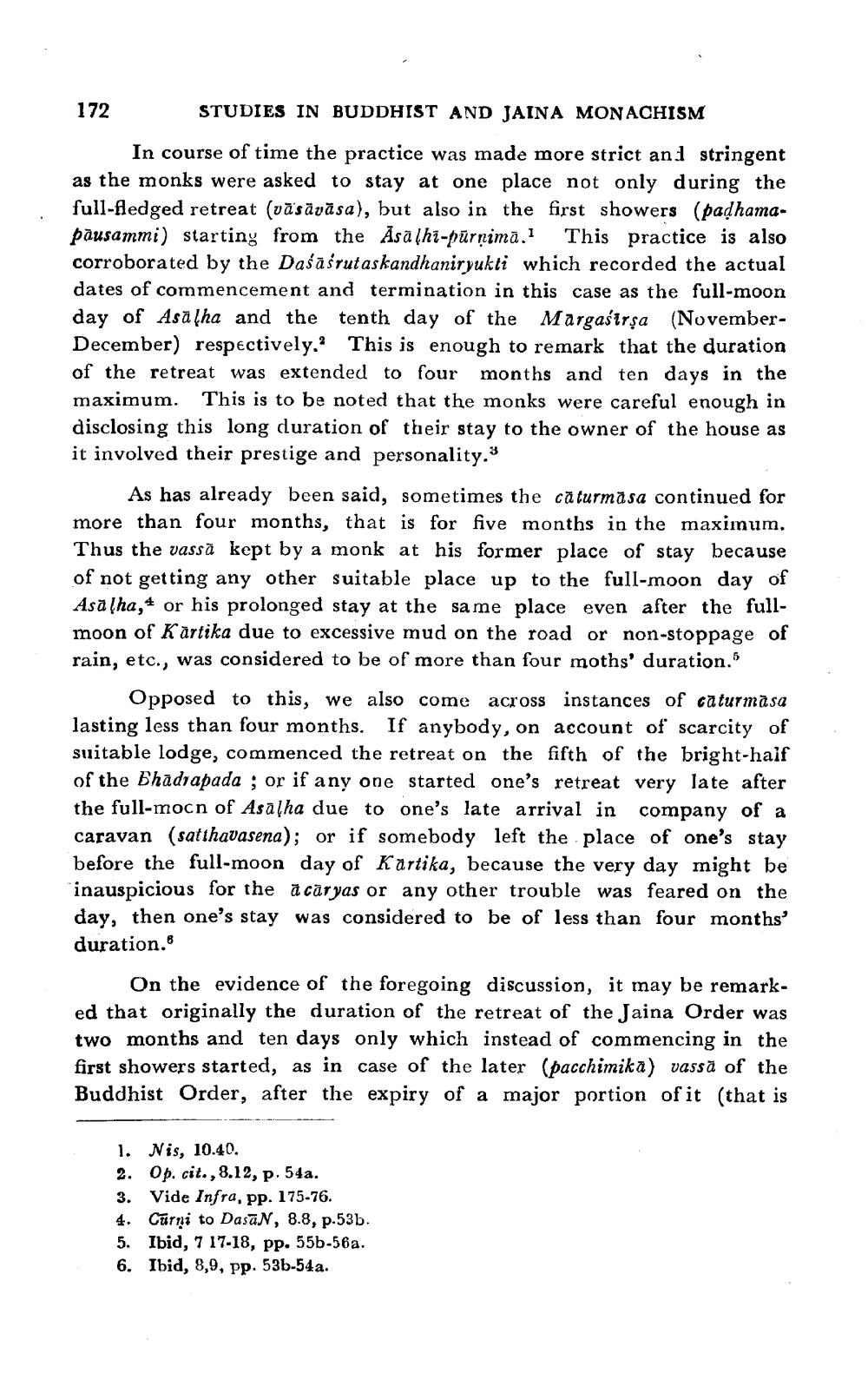________________
172
STUDIES IN BUDDHIST AND JAINA MONACHISM
In course of time the practice was made more strict and stringent as the monks were asked to stay at one place not only during the full-fledged retreat (vāsävāsa), but also in the first showers (padhamapausammi) starting from the Asā ļhi-purņimā. This practice is also corroborated by the Daśāśrutaskandhaniryukti which recorded the actual dates of commencement and termination in this case as the full-moon day of Asasha and the tenth day of the Margasirşa (NovemberDecember) respectively. This is enough to remark that the duration of the retreat was extended to four months and ten days in the maximum. This is to be noted that the monks were careful enough in disclosing this long duration of their stay to the owner of the house as it involved their prestige and personality."
As has already been said, sometimes the cãturmasa continued for more than four months, that is for five months in the maximum. Thus the vassā kept by a monk at his former place of stay because of not getting any other suitable place up to the full-moon day of Asa [ha,+ or his prolonged stay at the same place even after the fullmoon of Kartika due to excessive mud on the road or non-stoppage of rain, etc., was considered to be of more than four moths' duration.
Opposed to this, we also come across instances of caturmasa lasting less than four months. If anybody, on account of scarcity of suitable lodge, commenced the retreat on the fifth of the bright-haif of the Bhadrapada ; or if any one started one's retreat very late after the full-mocn of Asalha due to one's late arrival in company of a caravan (satthavasena); or if somebody left the place of one's stay before the full-moon day of Kartika, because the very day might be inauspicious for the à cāryas or any other trouble was feared on the day, then one's stay was considered to be of less than four months' duration.
On the evidence of the foregoing discussion, it may be remarked that originally the duration of the retreat of the Jaina Order was two months and ten days only which instead of commencing in the first showers started, as in case of the later (pacchimika) vassä of the Buddhist Order, after the expiry of a major portion of it (that is
1. Nis, 10.40. 2. Op. cit., 8.12, p. 54a. 3. Vide Infra, pp. 175-76. 4. Carni to Dasan, 8.8, p.53b. 5. Ibid, 7 17-18, pp. 55b-56a. 6. Ibid, 8,9, pp. 53b-54a.




